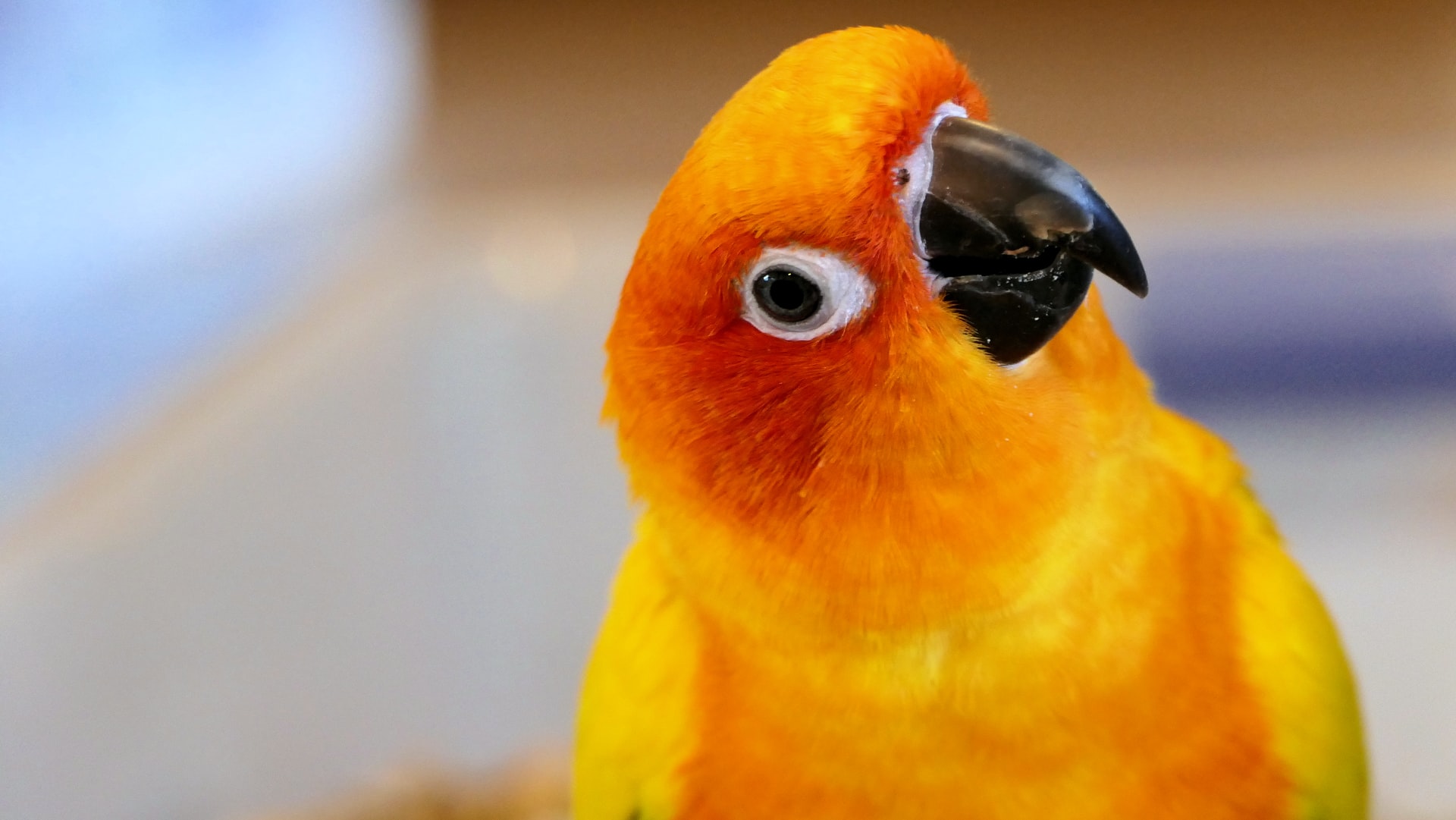JavaScript seems to be disabled in your browser. For the best experience on our site, be sure to turn on Javascript in your browser.
Conure Parrot Personality, Food and Care

The Conure is one of the more diverse groups of parrots. These spunky and always comical parrots come in different ranges of eye-catching colours. They also have colourful personalities. They come in small and medium sizes. They also have long tail feathers ranging from just under 10 inches to over 20 inches, depending on the conure species.
There are 40 species of conures but only about a dozen conure parrots are kept as pets. Some of these include the Blue-crowned conure, Green-cheeked conure, Jenday conure, and Sun conure.
Conures can further be subdivided into two classes; The Aratinga species that tend to be mostly brightly coloured, very loud and also less cuddly and the Pyrrhura conures which are smaller, quieter, and will make a docile best friend.
Conures Behaviour
If you love any of the following behaviours in a pet, the conure parrot could be your next best friend. A conure parrot.
- Enjoys the company of humans
- May be interested in interacting with other birds but may not want to share a cage with other birds
- Loves to sleep on its back on the floor of its cage
- Enjoys chewing its toys or anything else
- Loves unscrewing things or poking at locks
- Would screech for a long time if left alone for a long time
- It May take 3-4 days to warm up to a new owner and may likely not want to be touched
Conures Food and Treats
A conure’s diet should comprise a nutritionally balanced diet, supplemented with fresh vegetables, fruits, and healthy table foods. Since conures have very busy beaks, Scarlett Parrot foods and treats are your conure favourite. Scarlett Parrots's Avi-Cakes, Pellet-Berries, Conure Treats, Soaking Food, and Fruit Mixes offer balanced nutrition which appeals to your conure’s chewing needs. If your conure is properly cared for with the necessary meals and treats, it can live between 20 to 30 years.
Place your orders here
Conures Health
Conures are prone to feather picking. Asides from the usual medical causes of feather plucking, boredom and/or lack of appropriate mental stimulation can be a cause. Provide your conure with an enriched environment with plenty of opportunities for play and exercise, as well as a staple supply of safe items to chew. Conures are also susceptible to Proventricular Dilatation Disease (PDD), Psittacine Beak and Feather Disease, Psittacosis, beak malocclusion, and Aspergillosis. Regular health checkups are crucial to your conure’s health, as they would help diagnose and treat any disease early on.
Conures Sound
Your Conure's signature sound would always be a high-pitched screech which would often be emitted when your Conure is excited, startled or when it needs attention. Many bird owners make the error of inadvertently augmenting a conure’s screech by running over to the cage or otherwise giving the bird direct attention whenever it begins screeching. Some conures can talk and even though their language is not as extensive as that of other parrot species. Your Conure can also learn to speak a few words and phrases.
Finally, one thing you need to be conscious of as a conure owner is that conures tend to bite their owners or people around them especially when they are young or have been moved from one home to another. The great news is that conure owners can always train this habit out of them with time and a constant approach.










